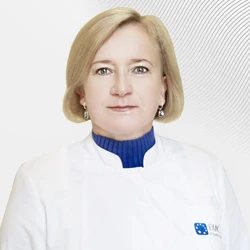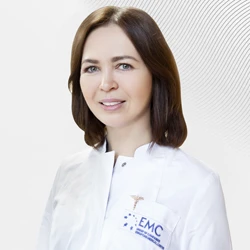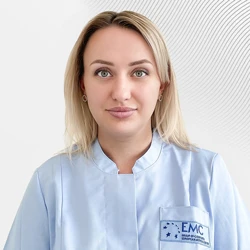Complaints from parents about irritability, sleep disorders, and increased fatigue of the child are not uncommon at a pediatrician's appointment.
One of the causes of such conditions may be asthenia, or the so-called asthenic syndrome.
These symptoms can also occur in a healthy child as a manifestation of physiological fatigue during overwork, after physical or mental exertion, and they pass quickly after rest and proper sleep.
In other situations, complaints last for weeks or even months, and it is quite difficult to cope with them without the help of a doctor.
Asthenic conditions often occur after an infectious disease - acute respiratory viral infections, flu, sore throat, and now a new coronavirus infection. The first symptoms of postinfectious asthenia occur 1-2 weeks after the disease and can persist for 1-2, and sometimes even 6 months.
The clinical manifestations of postinfectious asthenia include
- Increased physical and mental exhaustion, fatigue, fatigue and weakness, inability to fully rest.
- Emotional manifestations: frequent mood swings, irritability, anxiety, internal tension, touchiness, tearfulness, short temper, moodiness, impressionability,
- Vegetative disorders: sweating, feeling of heart failure, lack of air, shortness of breath.
- Cognitive impairments: difficulty concentrating, memory loss.
- Intolerance to external stimuli: loud sounds, bright light, vestibular loads.
- Sleep disorders (difficulty falling asleep at night, lack of vigor after a night's sleep, daytime sleepiness).
When fighting an infection, the body consumes a large amount of energy reserves. Viral or bacterial intoxication plays a role. The child's appetite changes, and he lacks the macro- and micronutrients necessary for energy production and antibody production. Vitamins, trace elements, and essential fatty acids are actively consumed to ensure the body's protective reactions.
Thus, after recovery, an imbalance of energy and metabolic processes remains in the body, which provoke the development of malaise.
If you do not help the child and leave asthenic syndrome unattended, there is a high probability of reinfections, exacerbation of chronic diseases and deterioration of the condition in general.
The treatment of asthenic conditions is based on the elimination of energy deficiency and hypoxia, strengthening antioxidant protection, and restoring metabolic processes.
Treatment of postinfectious asthenic syndrome, first of all, consists in providing the child with the necessary recovery period with adequate nutrition, rest, healthy sleep and a reasonable appointment of metabolic therapy.
A good night's sleep is very important for a child to recover, so parents need to adhere to certain rules:
- Put your child to bed at the same time.
- Postpone active and exciting games for the first half of the day.
- Before going to bed, bathe the child, read him a book, sing a lullaby.
- Ventilate the child's bedroom well before going to bed, the temperature in the bedroom is 19-20 C.
- The room where the child sleeps should be dark (light reduces the level of melatonin, which the brain produces during sleep), especially harmful sources of blue light. TVs, tablets, and phones should not be in the bedroom.
A pediatrician may prescribe melatonin medications for children with sleep disorders. Melatonin is a sleep hormone and regulator of circadian rhythms, produced by the pineal gland in response to the onset of darkness. Melatonin not only facilitates falling asleep and restores the sleep rhythm, but also has many other useful properties: antioxidant activity, protecting cell DNA from the damaging effects of free radicals, stimulates the immune system, has an anti-stress effect, participates in the regulation of body weight.
In case of asthenic syndrome, the appointment of magnesium preparations is justified. Magnesium deficiency, which is common in children according to scientific research, is aggravated by increased intake of this trace element under stress caused by infection, and leads to the formation of symptoms of hyperexcitability.
Therapy with magnesium-containing drugs significantly reduces the emotional, mental, and vegetative manifestations of asthenic syndrome in children.
If fatigue is combined with increased irritability and sleep disorders, sedative herbal remedies (valerian, motherwort, passionflower extract, lavender) may also be recommended.
Comprehensive treatment of postinfectious asthenia necessarily includes the appointment of vitamin preparations, in particular vitamin D, C, A, B vitamins, Omega - 3 fatty acids, correctors of energy metabolism (coenzyme Q, carnitine), minerals (zinc, selenium, iodine); herbal tonic preparations such as eleutherococcus extract, tinctures of lemongrass, ginseng.
Of course, not every acute respiratory viral infection leaves behind such unpleasant symptoms. It depends on the aggressiveness of the virus or bacterium, and in many ways on the quality of the child's overall health: the state of his immune system, neuroendocrine system, gastrointestinal tract and microbiota, adaptive abilities of the body, the presence of background diseases.
As parents, we can manage the quality of our children's health. For the treatment and prevention of asthenic conditions in children, it will be useful for parents to get acquainted with preventive integrative pediatrics and individual preventive children's programs being developed at the EMC.
Author Maria Shilko is a pediatrician, PhD, expert in preventive and functional pediatrics.












.webp)





.webp)






